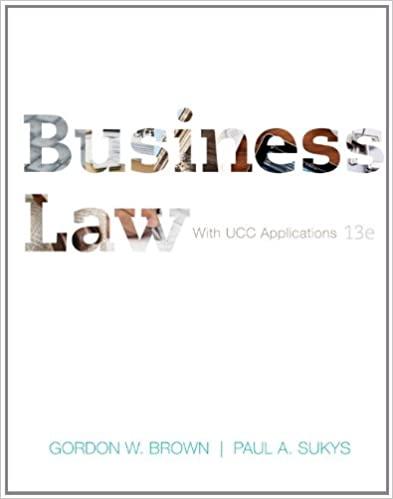When United States military forces entered Pakistan for the express purpose of invading the al Qaeda compound
Question:
When United States military forces entered Pakistan for the express purpose of invading the al Qaeda compound in Abbottabad and either capturing or killing Osama bin Laden, they were not concerned with legal niceties. They had a mission to accomplish and that was all that concerned them. Nevertheless, once the job was done, the legal questions emerged. In global operations such as the bin Laden mission, two legal spheres of influence must be addressed: the national and the international. In the international arena, there is the question of whether the uninvited use of American troops on foreign soil is legally permissible.
This question can be handled in two ways. First, it can be answered by direct reference to international law, specifically the United Nations Charter. Chapter VII, Article 51 of the UN Charter clearly states that, despite earlier articles that limit the use of force against or within a sovereign state, nothing in those articles is intended to “impair the inherent right or individual or collective self-defense.” Second, the question can also be answered by reference to the just war theory.
The just war theory uses six tests for deciding whether a war is morally justified:
(1) Just cause.
(2) Right intention.
(3) Competent authority.
(4) Probability of success
(5) Proportionality, and
(6) Last resort. As we shall see, the bin Laden operation passes each of these tests. In the national arena, there is the question of whether the president can use American forces without a congressional declaration of war. This question can be answered by reference to the Authorization for the Use of Military Force, an act passed by Congress in the wake of the 9/11 attacks. The act empowers the president of the United States to utilize “all necessary and appropriate force against those nations, organizations, or persons” who are found to have been involved in the 9/11 attacks. Like the action authorized by UN Article 51, the Authorization Act relies upon self-defense as justification for the use of forces, so long as that military force is used “to prevent any future acts of international terrorism” against the United States. As we shall see, these are not the only legal justifications for the recent operation in Pakistan, but they will do for now. [See Dionne Searcey, “Killing Was Legal Under U.S. and International Law, Many Experts Say,” The Wall Street Journal (May 6, 2011), p. A6; Jenna Greene, et al., “In Bin Laden Killing, Legal Clarity,” The National Law Journal (May 9, 2011), pp. 1 and 4-5; Michael Byers, War Law: Understanding International Law and Armed Conflict (New York: Grove Press, 2005), p. 7.]
Question
1. Why should the United States care about international law in a situation like the operation in Pakistan? Explain.
2. Had bin Laden been captured alive; would he have been tried in the United States or by the International Criminal Court? Explain.
3. Had bin Laden been captured alive and tried in the United States, would he have been tried by a civilian court or by a military tribunal? Explain.
4. Did the president overstep his authority in this case when he ordered a military operation within a sovereign nation-state? Why or why not?
5. How is the military action in Pakistan like the recent NATO military action in Libya? How is it unlike that action? Explain.
Step by Step Answer:

Business Law With UCC Applications
ISBN: 9780073524955
13th Edition
Authors: Gordon Brown, Paul Sukys





